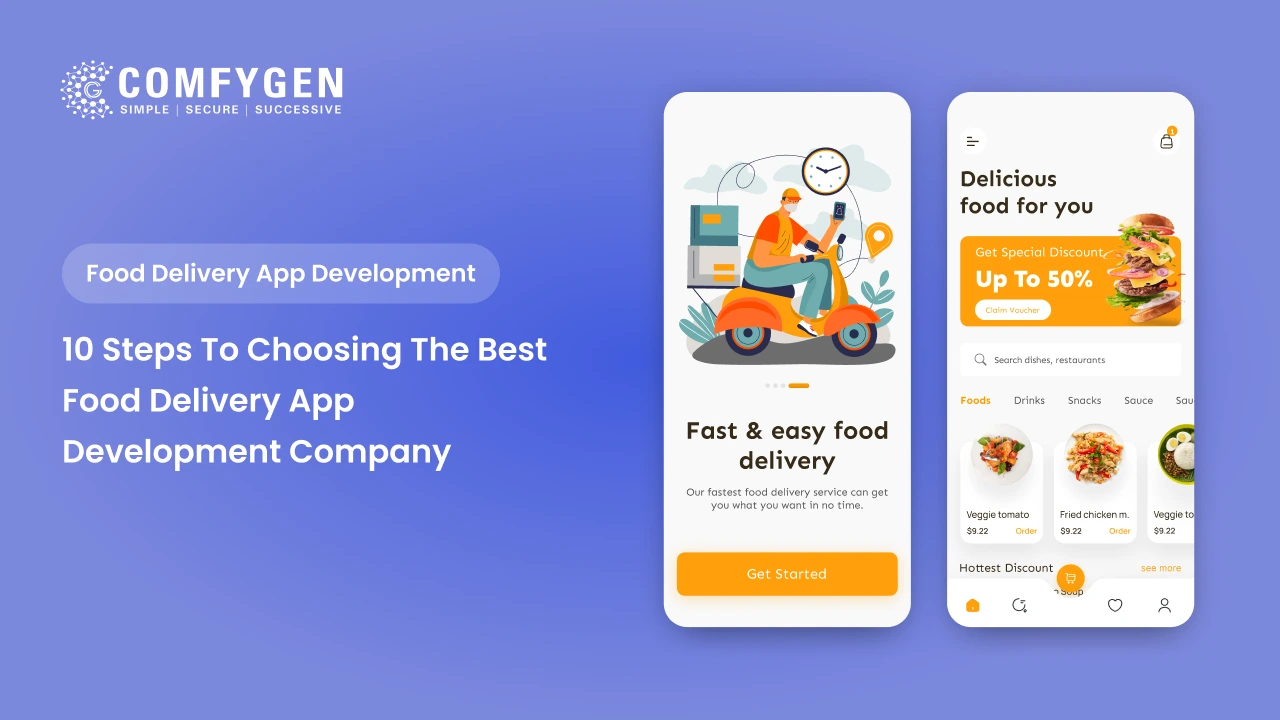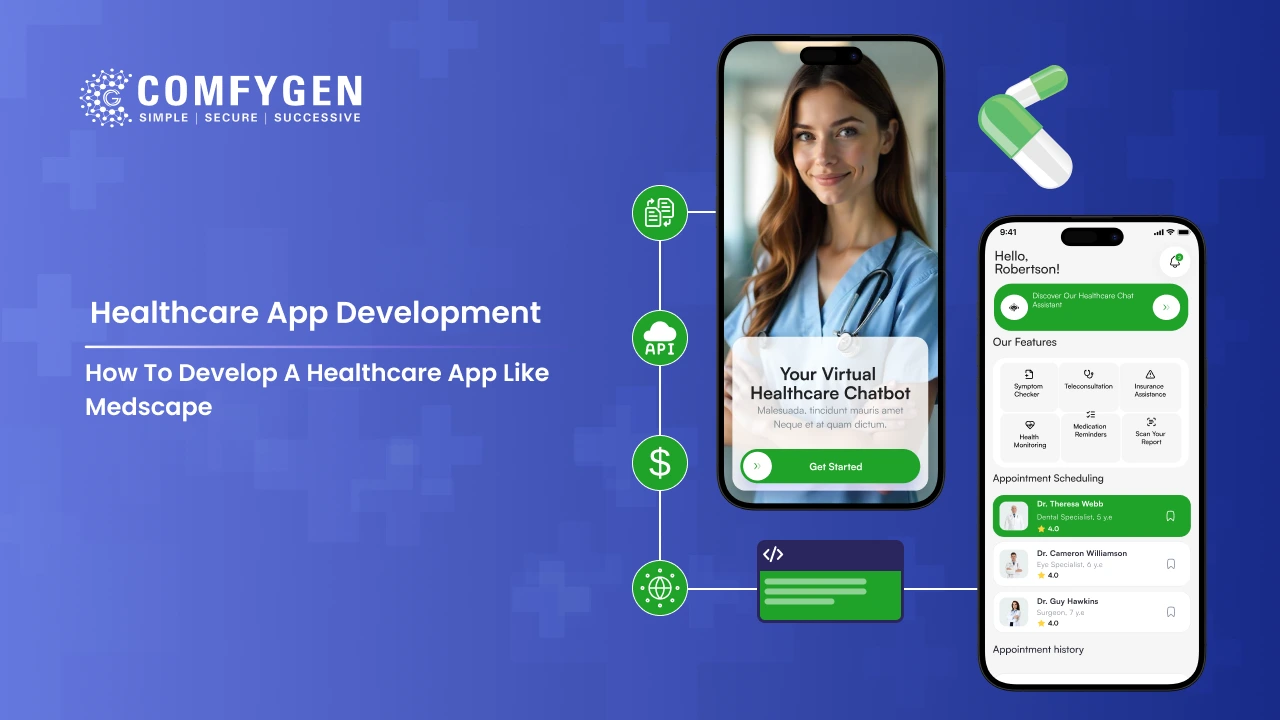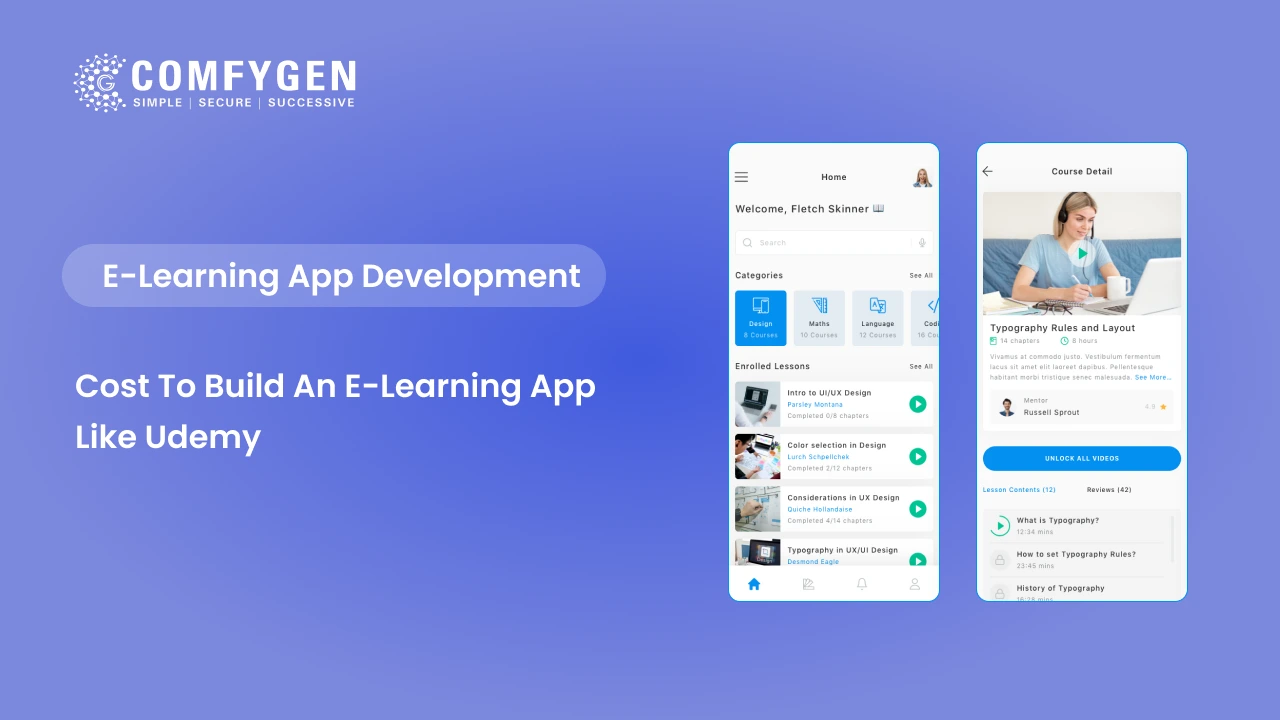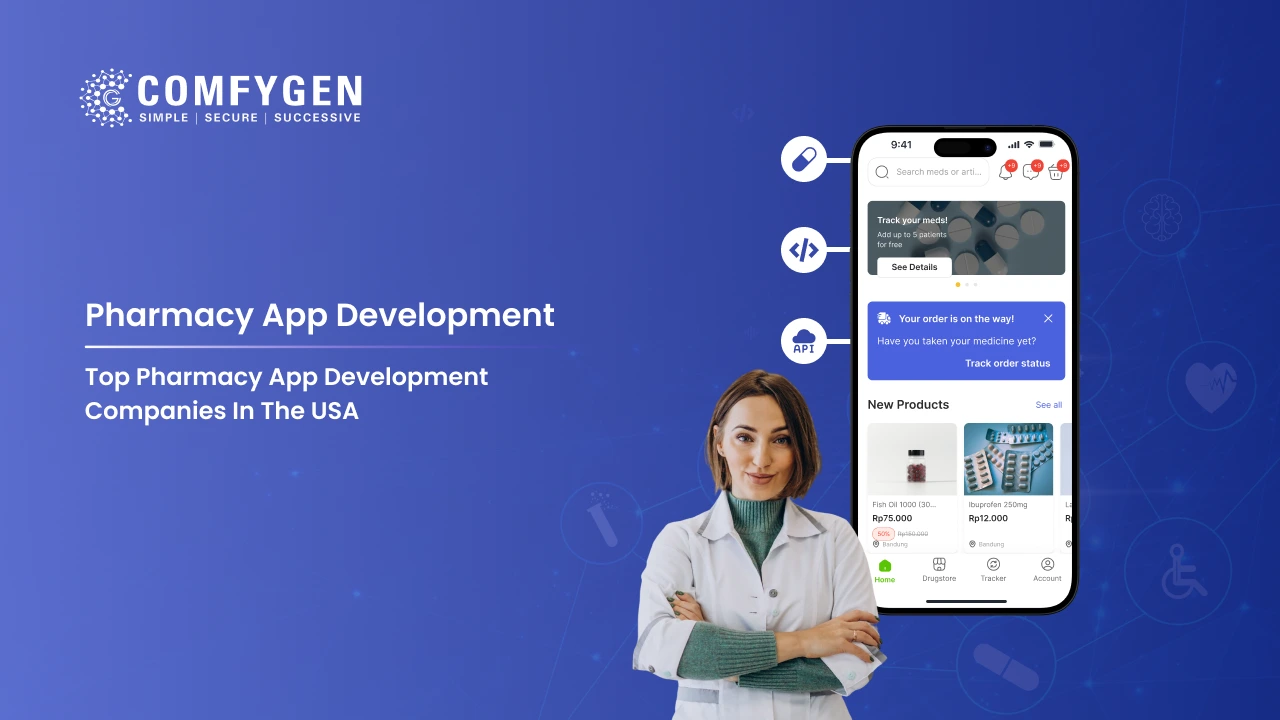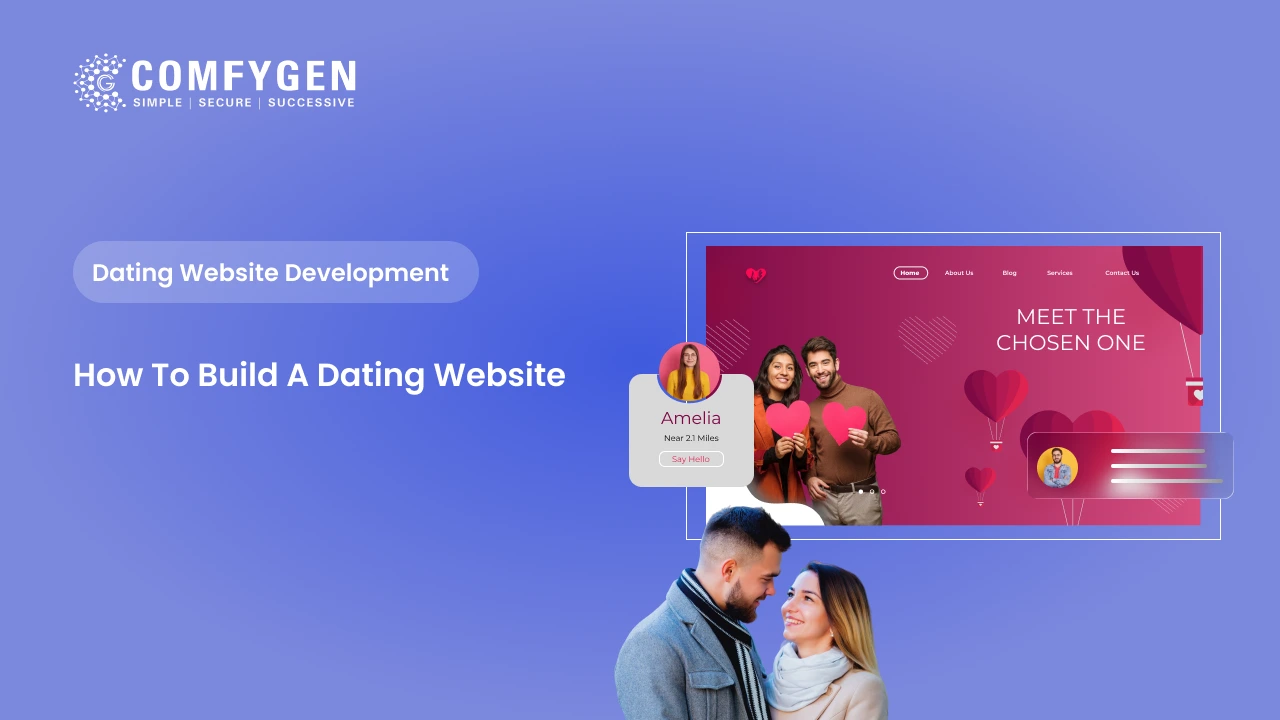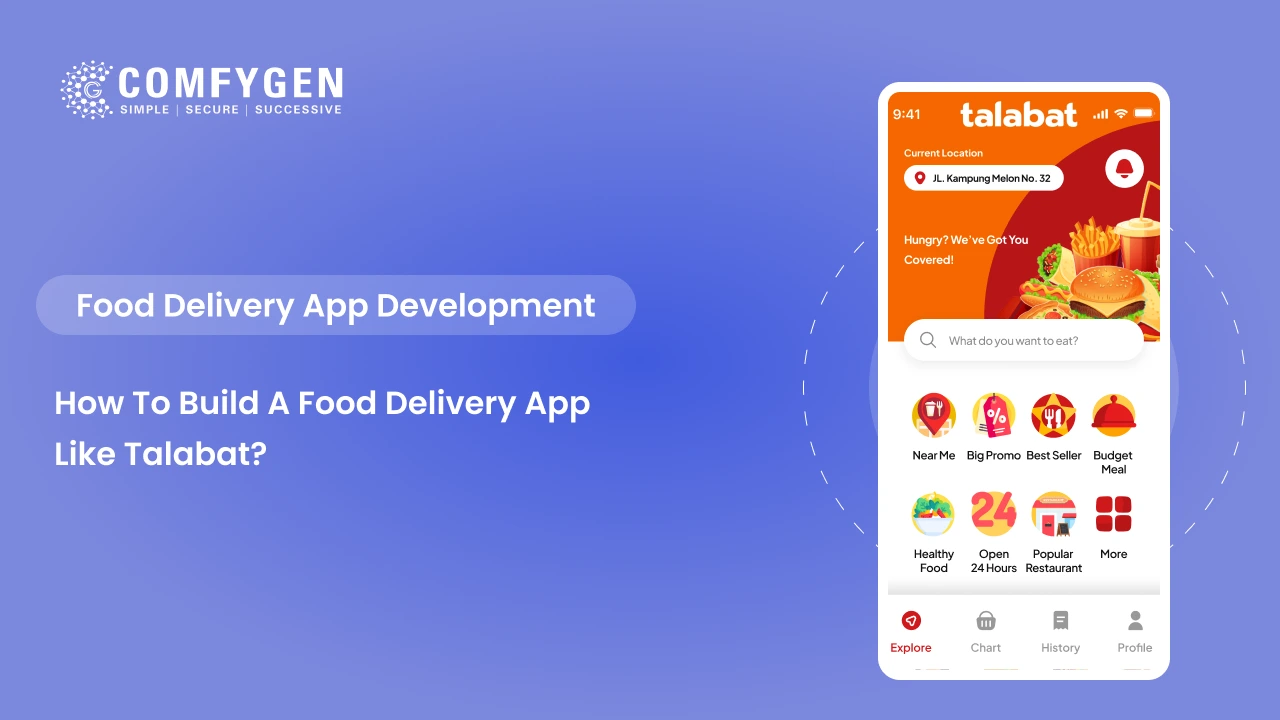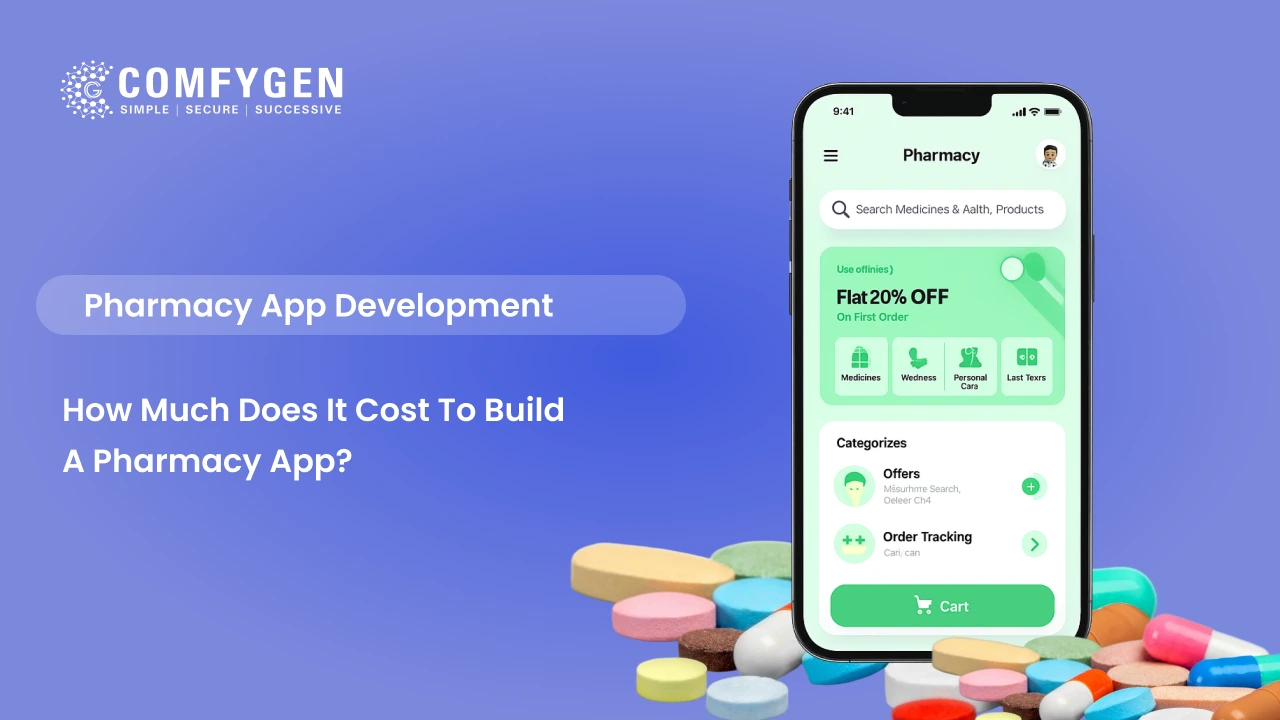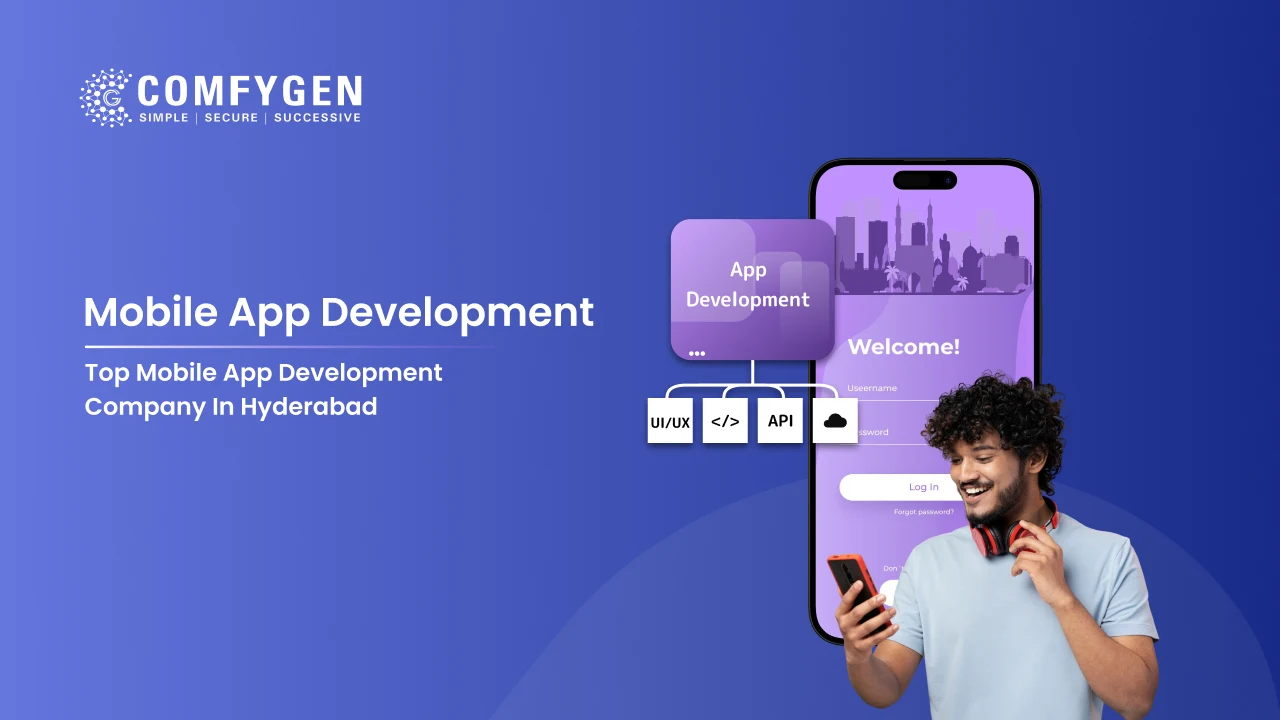In today’s fast-paced digital world, on-demand food delivery services are booming, reshaping how restaurants interact with customers and how consumers access their favorite meals. Whether you’re a startup entering the food tech market or an established restaurant chain expanding your reach, developing a robust and user-friendly food delivery app is a business-critical investment.
However, building a successful food delivery app is not just about having a great idea. Execution—particularly the choice of the right food delivery app development company—can make or break your digital venture.
This comprehensive guide will walk you through 10 essential steps to help you choose the best food delivery app development partner that aligns with your business goals, budget, and long-term vision.
Step 1: Clearly Define Your Vision and Business Goals
Before reaching out to a top-rated food delivery app development company, you must first develop a clear understanding of your project. This means identifying:
- The purpose of your app: Will it serve individual restaurants, multi-vendor platforms, or delivery-only cloud kitchens?
- Target audience: Are you targeting corporate professionals, students, or families in a specific geographic location?
- Core features: Do you need GPS tracking, in-app chat, multiple payment methods, ratings, promotions, or loyalty points?
- Monetization model: Will you charge commission, delivery fees, or use subscription-based models?
- Timeline and budget: When do you want to launch, and how much are you prepared to invest?
A clearly defined roadmap helps your development partner understand your vision and provide realistic proposals for on-demand food delivery app development.
Step 2: Look for Industry-Specific Experience
Choosing an on-demand mobile app development company with specific experience in food delivery app development gives you a distinct advantage. These companies are already familiar with the ecosystem, including:
- Restaurant listings
- Menu management
- Order processing
- GPS tracking
- Payment gateway integration
- Real-time notifications
- Admin dashboards
Ask for case studies or client references in the food delivery or on-demand space. A proven track record demonstrates not only technical expertise but also domain knowledge.
Step 3: Evaluate Their Technical Capabilities
A food delivery app involves multiple components—customer app, delivery partner app, restaurant dashboard, and admin panel. Ensure the company has expertise in full-stack mobile and web development using modern tools and frameworks.
| Category | Technologies & Tools | Description |
| Backend & Database | – Node.js, Python, PHP
– Firebase, AWS, custom server – SQL/NoSQL databases |
The backend should support scalability and data security. |
| Mobile Development | – Native (Swift for iOS, Kotlin for Android)
– Cross-platform (Flutter, React Native) |
Native development for platform-specific features; cross-platform for wider reach. |
| Real-Time Features | – GPS/Map SDKs (Google Maps API, Mapbox)
– Push notifications (Firebase Cloud Messaging, OneSignal) – Payment gateways (Stripe, Razorpay, PayPal) |
Real-time tracking, notifications, and secure payment integration. |
Step 4: Review UI/UX Design Expertise
Design plays a pivotal role in user engagement and retention. A great UI/UX design can turn casual users into loyal customers. The best food delivery mobile app development company you choose should have a design-first mindset, focusing on intuitive navigation, fast load times, and a delightful user experience.
- Provide wireframes and design mockups during the planning phase
- Use modern UI/UX design principles (e.g., minimalism, intuitive navigation, accessibility)
- Test usability on different screen sizes and devices
Step 5: Analyze Portfolio and Case Studies
An established on-demand food delivery app development company should have a strong portfolio that showcases real-world projects. Look for the best food delivery apps that:
- They are still live and active in the app stores
- Have good user reviews and ratings
- Include functionality similar to what you need
Dig deeper into their case studies to see how they addressed specific challenges such as:
- Handling high-volume orders
- Ensuring real-time delivery updates
- Managing multi-language or multi-currency platforms
Step 6: Examine Their Development Process
A clear and well-structured food delivery software development life cycle (SDLC) make sure timely and efficient project execution. Ask about the process they follow—ideally, they should be using Agile or Scrum methodologies.
Key stages to expect:
- Discovery & Requirement Gathering
- Wireframing & Prototyping
- UI/UX Design
- Development (Frontend + Backend)
- QA Testing & Bug Fixing
- Deployment to App Stores
- Post-launch Support
Ensure there are milestones, sprints, or check-in points at each stage. This keeps the project transparent and allows for iterative feedback and improvements.
Step 7: Prioritize Scalability and Customization
Avoid generic, pre-built app templates unless you’re testing an MVP. Instead, opt for a custom-built solution that is:
- Scalable (can handle more users, vendors, or features over time)
- Modular (allows for feature updates without rebuilding the entire app)
- API-ready (can integrate with CRMs, POS systems, delivery APIs)
Also, consider whether the on-demand food delivery app development firm in India supports multi-restaurant models, cloud kitchens, or white-labeling options if you plan to expand or offer app-building services under your brand.
Step 8: Check Client Reviews, Testimonials & Ratings
When it comes to selecting a reliable food delivery app development company, client feedback is one of the most powerful trust indicators you can rely on. Glowing websites and sales pitches can be misleading, but genuine reviews and testimonials provide unfiltered insight into a company’s actual performance, reliability, and professionalism. Visit sites like:
- Clutch.co
- GoodFirms
- AppFutura
- Google Reviews
- LinkedIn Recommendations
Look for consistent praise around communication, on-time delivery, after-sales support, and product quality. Avoid companies with negative feedback around hidden costs, delays, or lack of transparency.
Step 9: Discuss Cost Transparency and Time Estimates
When evaluating food delivery app development companies, cost should not be the sole deciding factor. Instead, focus on the value offered for the price. Make sure there is transparency in pricing—whether it’s fixed, hourly, or milestone-based. Request a detailed proposal that includes breakdowns for:
- Discovery & design
- Development costs
- Third-party API fees
- App Store/Play Store submission costs
- Post-launch maintenance
Also, clarify timelines. A quality food delivery app typically takes 8–16 weeks to develop, depending on the app’s complexity. Make sure the timeline is realistic and aligned with your business goals to avoid delays or rushed work.
Step 10: Ensure Legal, Security, and Data Compliance
Food delivery apps handle sensitive user data, including personal details, payment information, and location history. It’s essential to make sure that the best food delivery app development agency follows proper legal and security standards to protect user privacy and comply with regulations.
Key Compliance Areas:
- GDPR (General Data Protection Regulation) or CCPA (California Consumer Privacy Act) for data privacy.
- PCI DSS standards for secure payments.
- SSL encryption to protect data during transmission.
- 2FA (Two-Factor Authentication) and biometric logins for secure user access.
Protect Your Intellectual Property:
- Non-disclosure agreements (NDAs) to safeguard sensitive information.
- Source code ownership clauses to retain full control over your app.
- IP rights and licensing agreements to ensure legal protection of your app’s assets.
Final Thoughts
Building a food delivery app is a long-term investment. Don’t rush the process — take the time to evaluate multiple companies based on these ten steps. The right food delivery app development company will not only bring your vision to life but also help you stay competitive in this fast-growing market.
Looking for a reliable development partner? Comfygen specializes in custom food delivery app development with end-to-end services.

Mr. Saddam Husen, (CTO)
Mr. Saddam Husen, CTO at Comfygen, is a renowned Blockchain expert and IT consultant with extensive experience in blockchain development, crypto wallets, DeFi, ICOs, and smart contracts. Passionate about digital transformation, he helps businesses harness blockchain technology’s potential, driving innovation and enhancing IT infrastructure for global success.

